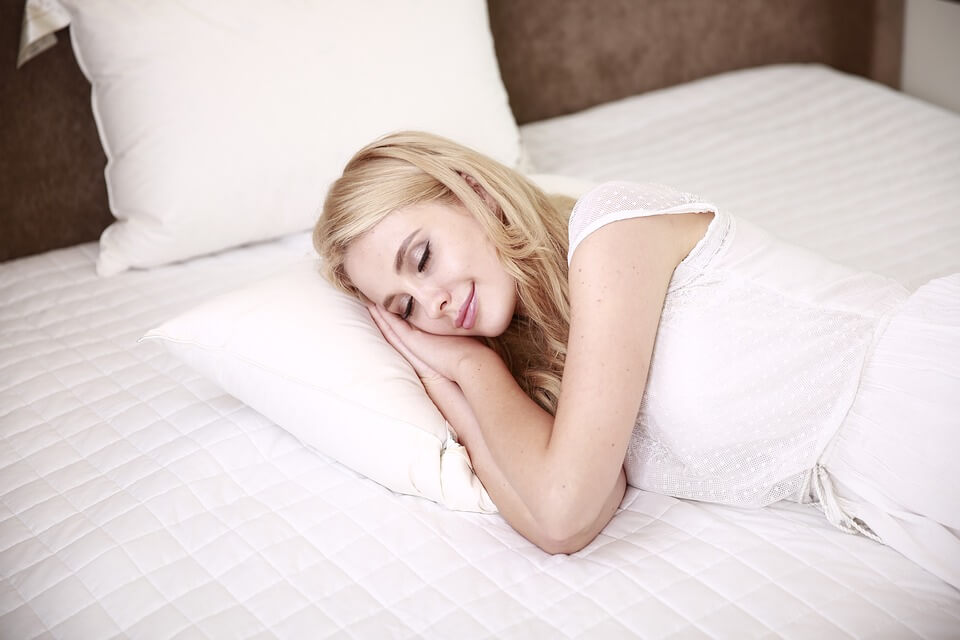Sleep is a fundamental human need. In order to lead a healthy life, quality of sleep is absolutely essential, for all of us.
A new year, a new start
January and February are traditionally the months when many of us start a new exercise programme. It’s very important to listen to your body, especially if you’ve started an exercise regime you’re not used to. Sleep is a key element in your quest for fitness as it restores and repairs both body and mind.
The rhythm of life
At this time of year, our beds can feel more inviting than usual. Our circadian rhythms (our physical bodily behaviour over a 24-hour cycle) respond to light and darkness. When the days are short, our bodies react to external cues and seek refuge in sleep, far more than they do in the spring or summer.
The impact of insomnia
Health suffers when sleep is compromised. It’s estimated that almost 50% of us suffer from insomnia. Lack of sleep can result in:
- depression and anxiety
- irritability
- poor concentration which impacts on work, exercise and driving
- loss of interest in usual activities
- a poorer quality of life.
Take control
If you have problems sleeping, there are some very practical things you can do to improve matters. Sleeping tablets should only be considered a temporary solution. It’s far better to get to the root of the problem, so that you can establish proper sleep patterns.
Evening routine
Establish a healthy bedtime routine that helps you prepare for a restful night’s sleep. For example:
- take a warm bath
- have a hot drink
- avoid stimulants – such as caffeine, alcohol, nicotine or street drugs
- avoid strenuous physical or mental exercise for at 90 minutes before bed
- keep your bedroom cool, ideally 15.5 – 20 degrees Celsius.
- try some relaxation techniques such as deep breathing or meditation
- avoid using electronic devices for at least an hour before bed
- go to bed as soon as you feel sleepy.
The impact of depression and stress on sleep
One of the major causes of poor sleep is depression. If your sleeplessness is accompanied by feeling low or taking no pleasure in things you’d usually enjoy, you may well be depressed.
Stress can also cause sleeplessness. It’s hard to silence your monkey mind when there are no distractions, and anxiety about repeated sleeplessness generates adrenaline that keeps you awake, night after night.
If you are stressed or depressed, lack of sleep will exacerbate these problems. If this sounds like it might be you, talk to your doctor as soon as possible.
A sleep diary can help
Another way to get to the bottom of your sleep problems is to keep a sleep diary. By answering a series of questions about your daily activities and your sleep pattern over a period of time, your responses can reveal exactly what is stopping you from getting a good night’s sleep. Click here to access the sleep diary.
A note about snoring
40% of people in the UK are thought to be regular snorers. It’s definitely an occupational hazard if you share a bed. But even your own snoring can lead to disrupted sleep.
If the snoring – either yours or your partner’s – isn’t causing serious problems, then there’s no need to see your GP. There are some things that you can try to address the problem. If your partner snores, try earplugs. If you’re the snorer, try lying on your side. If you’re overweight, try to lose a few pounds. Or if you’re a regular drinker try drinking less.
But if your snoring is really affecting your relationship there are lots of devices available, that we can prescribe to help. And some snoring problems can be serious. Make an appointment to see your GP as soon as possible if:
- you regularly wake up gasping in the night
- your partner says you stop breathing
- you are so tired during the day that you struggle to carry out your regular activities.
Don’t suffer alone
If you have problems sleeping, you can find help on the NHS sleep problems advice forum. You can share your issues with fellow sufferers, swap advice and get support. Join the forum by clicking here – NHS sleep problems advice forum.
We can help
The joy of sleep has been celebrated for years. Who says it better than Shakespeare?
‘We are such stuff as dreams are made on; and our little life is rounded with a sleep.’
Take steps to ensure you have a rounded life. The impact on your mental health if sleeplessness is left unchecked can be severe. If poor sleeping habits are getting you down, come in and talk to us. Together we’ll find the best treatment to ensure your sleeping habits improve.


Recent Comments